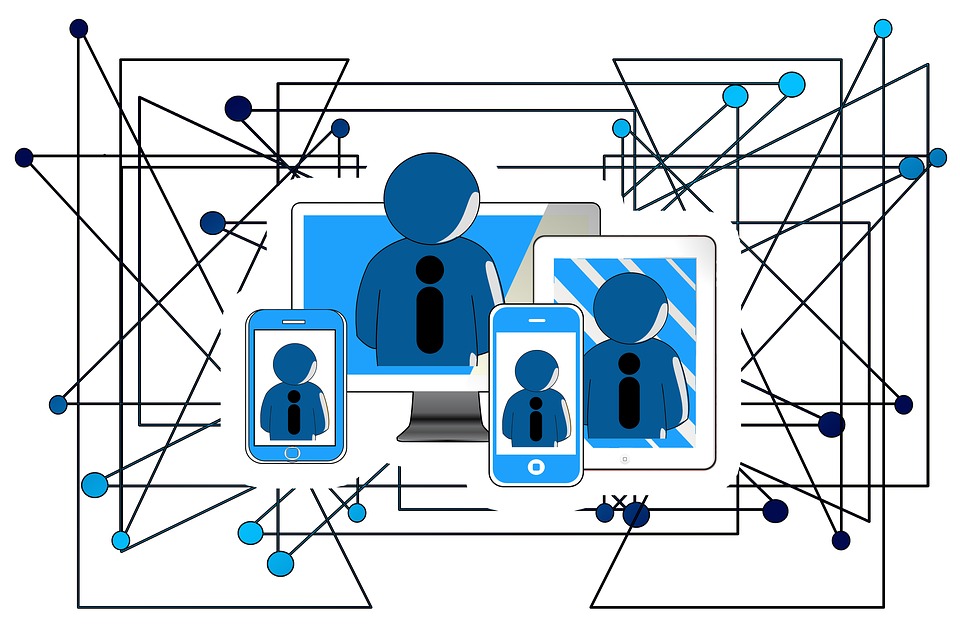Have you ever had a feeling that the websites you visit read your mind and know what you want before you even type anything? You have been looking for holiday inspiration, and now you see ads for perfect vacations everywhere? Maybe you were looking for a meal and got a recommendation for a nearby restaurant? We all had those moments, which are possible due to online tracking. It allows businesses to use cookies to improve their experience or digital footprint for fraud prevention, making our online lives safer and more efficient.
We live a busy digital life, with more and more people and businesses accessing it daily. Every person that accesses the Internet leaves a data-trace behind them that websites can collect and track. The truth is that almost every website you visit is tracking you. They collect different information about you, such as your location and intention to provide you with the best possible service.
What is Internet Tracking?
Internet or web tracking is a common name for different techniques websites and web services use to monitor the activity of their users. Through this monitoring, they can gather valuable information about them, such as users’ personal details, behavior, preferences, and interests. They can use this data to improve your experience on their website, improving their revenue stream in the process. A single piece of data is often not enough to create a clear picture which is why all this data is stored and updated over time. With time, it will become more detailed, allowing websites to create a clearer picture of their users.
The Internet is infiltrating almost every aspect of our lives, from the moment we open our eyes to the moment we close them. Just imagine your typical day. How often do you open your emails, social media platforms, or browse a website? Every time you do so, you leave a little bit of data behind, even if you are unaware of it. Sometimes, you even leave a more significant piece of data behind. For example, you grab dinner in a restaurant and tag them on the picture you posted on your social media. Not only does this indicate your location but also the type of restaurants you visit. Soon after, you might see an ad offering you a special deal for that or a similar restaurant. Or how the shopping site you used before constantly offers better suggestions after every use? This is an example of Internet tracking we have all experienced.
Who can track you?
The truth is that almost every service with the Internet access you use is probably tracking you.
While the list is the long one, this might give you a better picture of who might be tracking you:
- The websites you visit
- Apps on your devices
- Smart home devices
- Your telecommunication carrier
- Your internet service provider (ISP)
- Streaming services
- Your browser
- Social media platforms
- The search engines
They do so through different techniques such as cookies, tracking beacons, browser fingerprinting, digital footprint, or even IP address identification. Now that you know who and how it is the time for the question that is probably of most interest: “Why?”
Why do companies track you online?
We live in an age where data has more power than we ever expected. This is the Information Age, and data has never been more valuable. As we already said, every action you make online leaves pieces of data behind that can reveal different details about you. These traces give websites an opportunity to gather data about you that can allow them to offer you tailored services to maximize your satisfaction and improve their revenue in the process.
Websites track you for a myriad of reasons:
Advertising: By collecting data about you, businesses can create targeted marketing strategies that increase their chances of actually selling something. With more and more businesses using social media marketing, this will become more present than ever.
Improving the website performance: By collecting information about your settings, websites can personalize its performance around you. For example, an eCommerce site that uses your geolocation settings or language preferences to redirect you to the more suitable page version. We can all admit how much easier it can be to access a website created for your country and in your language instead of relying on the global one.
Improving customer satisfaction: Websites also collect users’ data to analyze their behavior to improve their content based on the users’ preferences. A more effective website equals happier customers.
Increase the revenue: The secret to maximizing sales is to offer your customers what they want, which can be hard to do if you don’t know what that is. By tracking their data, websites can determine their preferences and offer them products they would prefer instead of customers having to scroll through pages and pages to find what they want. Knowing what your customer wants and offering it to them quickly, will maximize the sales and increase the revenue.
Fraud prevention: Internet tracking is indispensable in the area of cybersecurity and fraud protection. It allows businesses to collect data about their customers to create their profiles and identify the pattern of their usual behavior. This makes it easier for them to notice any discrepancies connected with fraudulent behavior and allows them to take the necessary steps to investigate and prevent it. Internet tracking to prevent fraud is especially successful in preventing cybercrime such as account takeover and identity theft.
It is obvious why companies implement online tracking as it improves various aspects of their business operations. But, previous examples show how beneficial it is also for individuals. With our growing online presence, the amount of data we leave behind will just become greater and with it, the ways we can use it.
Conclusion
As we can see, internet tracking can be used for various purposes that benefit businesses and customers. While it makes our lives easier and more efficient, internet tracking in the wrong hands can be dangerous. While companies use it for your benefit, cybercriminals will not be as nice. This is why you need to ensure you take the necessary steps to ensure your data is protected from malicious actors. Choose the best antivirus, practice safe browsing, and be more mindful when posting on social media platforms to ensure your information is used only for beneficial purposes.



